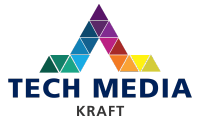Talent acquisition is one of the biggest challenges businesses face. With an influx of applications and a pressing need to identify the best talent efficiently, traditional hiring methods often fall short. That’s where Generative AI comes in, a transforming tool reshaping hiring practices by enhancing efficiency, reducing bias, and delivering a superior candidate experience.
This blog delves into how intelligent automation is transforming recruitment processes, equipping hiring managers with cutting-edge tools to make the best hiring decisions. From understanding what advanced AI models entails to implementing it in your hiring strategy, we’ll cover all the essential steps to help you leverage this technology effectively.
What is Generative AI?
AI-driven solutions refer to artificial intelligence capable of generating new content based on existing data, such as text, images, or even predictive insights. It’s utilized across industries for tasks like content creation, data analysis, and problem-solving. In the hiring domain, advanced machine learning models can analyze candidate data, generate interview questions, and provide insights into candidate potential.
Enabling data-driven decisions, AI-based hiring tools hold transformative potential in recruitment, allowing companies to identify and attract top talent faster and more accurately.
Why Use Generative AI in Talent Hiring?
Generative AI brings several advantages to the hiring process, making it a valuable asset for companies aiming to optimize talent acquisition.
- Improving Efficiency: Generative AI can automate screening processes, quickly scanning resumes, and identifying the best candidates. It reduces the time spent manually filtering applications, allowing HR teams to focus on engagement and strategy.
- Reducing Bias: AI-driven systems can help counter unconscious bias in hiring by evaluating applicants based on data rather than subjective criteria, promoting a more diverse workforce.
- Enhancing Candidate Experience: Generative AI can personalize candidate interactions, from customized emails to real-time updates, making applicants feel valued and engaged throughout the hiring process.
Key Applications of Generative AI in Hiring
Intelligent automation offers a variety of applications that can improve different aspects of the hiring process:
- Candidate Screening and Sourcing: AI algorithms can parse resumes, assess qualifications, and rank candidates based on fit, enabling faster identification of top prospects.
- Automated Interview Processes: Generative AI can create customized interview questions, simulate scenarios for candidates, and analyze their responses, streamlining interview rounds.
- Skill Assessment and Testing: AI-generated assessments can tailor questions to the candidate’s skill level, providing an accurate measure of their abilities in real time.
- Employee Retention Prediction: Generative AI can analyze data points to predict a candidate’s potential for long-term engagement, helping companies identify candidates who are more likely to stay and grow within the organization.
Steps to Implement Generative AI in Hiring
For companies looking to integrate AI-powered platforms into their hiring strategies, here are the essential steps to get started:
- Define Objectives and Needs: Start by outlining what you aim to achieve with generative AI, such as faster candidate screening or improved retention rates.
- Choose the Right AI Tools: Research and select AI platforms tailored to recruitment, ensuring they align with your hiring goals and integrate smoothly with your systems.
- Integrate AI with Existing Systems: Ensure that the generative AI tool you choose can work alongside your ATS or CRM software for seamless operation.
- Monitor and Refine: Track the performance of AI-based hiring tools hiring tools and adjust settings as necessary to optimize results and maintain accuracy.
Challenges and Ethical Considerations
While generative AI brings numerous benefits, there are also some challenges and ethical considerations to address:
- Data Privacy Concerns: As AI collects and processes vast amounts of personal information, companies must handle candidate data responsibly and ensure compliance with data privacy regulations.
- Bias and Fairness: Although AI can reduce bias, it’s not entirely immune. It’s essential to regularly audit AI algorithms to ensure they promote fairness in hiring decisions.
- Transparency and Accountability: Ensure that AI decisions are transparent and understandable. Hiring managers should be able to explain AI-driven recommendations to maintain accountability and trust.
Future of Generative AI in Talent Hiring
The role of cutting-edge AI tools in hiring is likely to expand as technology advances, bringing new trends and tools to the forefront. Here are some key trends to watch for:
- Predictive Hiring and Adaptive Learning Algorithms: As generative AI becomes more sophisticated, it will be able to predict candidate performance more accurately and learn from each hiring cycle to enhance its recommendations.
- Real-Time Decision-Making Tools: New AI tools will enable hiring managers to make real-time adjustments during the recruitment process, from dynamic interview questions to tailored onboarding programs.
As AI technology continues to evolve, companies that adapt will benefit from even more efficient and intelligent hiring practices.
Conclusion
Generative AI has the power to transform the hiring landscape, offering solutions to common recruitment challenges and creating a more effective and fair hiring process. Embracing this technology enables businesses to enhance efficiency, minimize bias, and attract top talent with greater ease.
For companies striving to stay competitive, generative AI is a strategic investment that can elevate talent acquisition efforts, ensuring the right people are in the right roles to drive organizational success.
FAQs
- How does Generative AI differ from traditional AI in hiring?
- Generative AI can create new content and insights, while traditional AI generally processes existing data without generating new outputs.
- Is Generative AI suitable for all types of hiring processes?
- While generative AI is versatile, it may be best suited for high-volume or skill-specific roles where automated screening can add value.
- What are some risks involved in using AI for recruitment?
- Potential risks include data privacy concerns, algorithmic bias, and lack of transparency, all of which require careful management.
- How can companies ensure fair and unbiased AI-driven hiring?
- Regular audits, transparent AI practices, and human oversight can help ensure that AI-driven hiring is fair and inclusive.
I hope you find the above content helpful. For more such informative content please visit TechMediaKraft.

